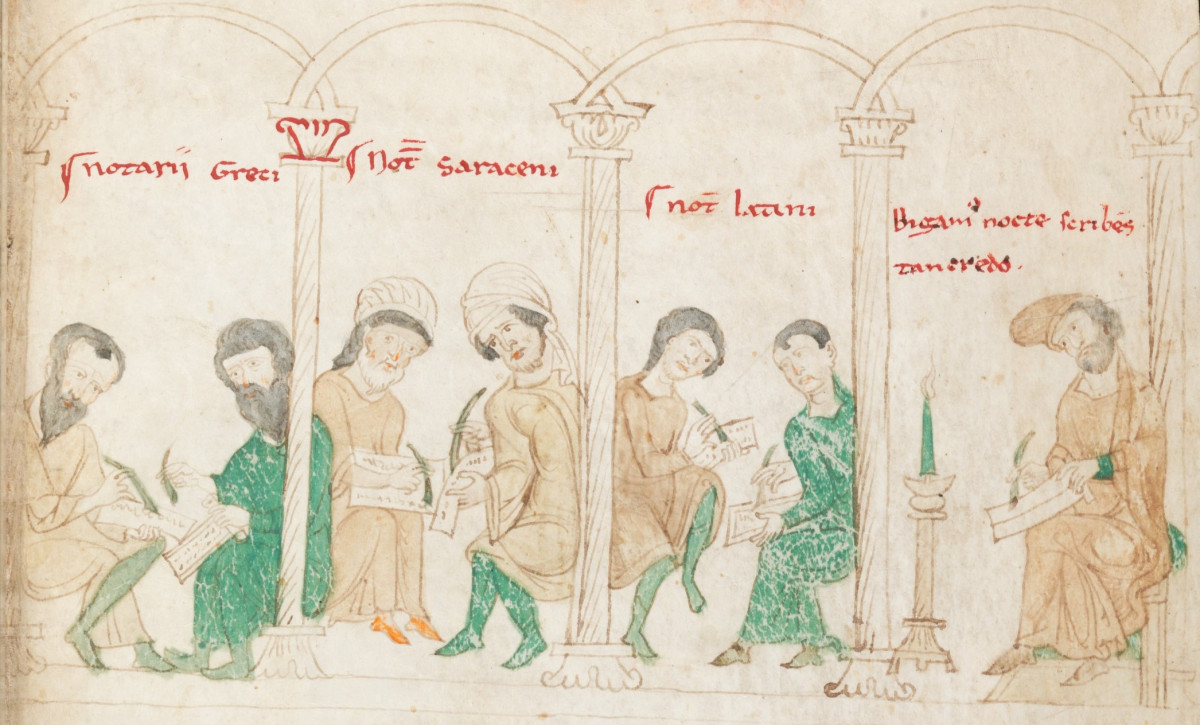
Source in the Spotlight

The Pompeia Iudea Sarcophagus from Arles
This third-century funerary monument stands as a testament to the inclusion of a Jewish woman in Arlesian society during that period.
Latest Case Study
Co-Producing Love and Paradise: The Sicilian School of Poets
The idea of a sensual paradise might seem foreign to medieval Christian devotion. But it was an important motif in the love poetry of the Sicilian School, and likely emerged from interactions between Christian and Muslim poetic traditions in the island’s Norman and Swabian courts. This article explores these hybrid origins – and how nationalist accounts have historically silenced them in favour of exclusively domestic narratives.

Event: International Conference and Workshop
Insular Entanglements: Malta, 300-1700
International Conference in Valetta, June 16-19th, 2026
Organizers: Mohamad Ballan (Stonybrook University) and Katharina Heyden (University of Bern)
Our upcoming conference "Insular Entanglements: Malta, 300-1700" examines Malta as a case-study of Mediterranean entanglement from Late Antiquity through the Early Modern period. The notion of entanglement that we propose is quite capacious, encompassing not only (nor even primarily) quotidian interreligious interactions but ideas of connections, polemics, memory, histories, and texts more broadly. This will include intellectual networks, economic and political connections, language, cultural encounters, religious thought and polemics, as well as the relationship between the local (Malta) and regional (Mediterranean). The idea of frontiers and borderlands will constitute an important theme of the conference, but we will also explore questions of materiality and material culture in early Christianity, the complex (and ever-changing) relationship between religious and cultural traditions, and the larger political transformations taking place across the medieval and early modern Mediterranean world.
Latest Publication
Co-produced Religions: Judaism, Christianity, and Islam
Harvard Theological Review 118 (2025), 159-180.
About
Who we are
The project is coordinated by Katharina Heyden, Professor for Ancient History of Christianity and Interreligious Encounters at the University of Bern (Switzerland), and David Nirenberg, Leon Levy Professor at the Institute for Advanced Study, Princeton (U.S.), and includes a network of collaborators across North America, Europe, and the Middle East.